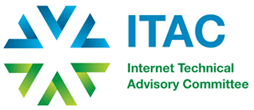 By Mark Lizar, CISWG Co-Chair, Kantara Initiative
By Mark Lizar, CISWG Co-Chair, Kantara Initiative
In a day and age where sharing personal data is increasingly central to our social practices online and a requirement for the use of many services and applications, the capacity for users to understand and manage the data they share online is more important than ever.
Key to this is the notion of consent, which means that people explicitly agree to sharing, but at this time people can’t independently track or control sharing using policies.
In this regard, Kantara Initiative’s Consent & Information Sharing Work Group (CISWG) is proud to announce our work on a Consent Receipt open standard. The Consent Receipt seeks to increase personal data control and transparency by increasing the capacity for people to track and manage data sharing relationships. We can build stronger trust in today’s digitally driven economy by upgrading the digital consent and “I agree” buttons on and off the Internet so that they provide users with a record of what personal information they have shared with a particular service.
The Consent Receipt serves people, organizations, and governments by addressing a lack of user trust. A Special Eurobarometer research report, released in June 2015, indicated a strong demand for consent, greater transparency, and more personal data control. This report is generated from a survey completed in March 2015. Approximately 28,000 respondents from different social and demographic groups were interviewed.
Sample quotes from the report reveal the current paradox: users are expected to provide consent with little or no information regarding what data they have consented to release.
- “Nearly seven out of ten people (69%) say that their explicit approval should be required in all cases “.
- “Yet only Only one fifth of respondents say they are always informed about the conditions of data collection and its potential uses when they are asked to provide personal information online.”
- “Two-thirds of respondents (67%) say that they find privacy statements too long to read, while nearly four out of ten (38%) find them unclear or too difficult to understand.”
The Challenge – Usable and meaningful consent is obstructed by outdated practices and infrastructure. Policies and consent management today are having the effect of obscuring personal data control and eroding trust and innovation in the digital economy.
The Solution – A Consent Receipt is designed to solve this issue by increasing the capacity for people to manage personal information sharing. The development of a common way to record consent enables privacy policies to be layered, making them machine and human readable.
A standardized Consent Receipt effectively enables consent to be managed independently of service providers while affording the opportunity to make consent a positive customer experience.
Kantara Initiative is a participating Member of the OECD-ITAC. If you would like to learn more about the Consent Receipt work and how your organization can contribute or adopt please visit:
http://bit.ly/ciswg
